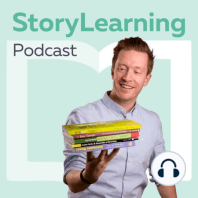11 min listen

188: What are the benefits of monolingual flashcards?
188: What are the benefits of monolingual flashcards?
ratings:
Length:
24 minutes
Released:
May 12, 2017
Format:
Podcast episode
Description
Charlotte asks: "What's your opinion on removing English from flashcards altogether? Episode Summary: Arguments for having flashcards entirely in the target language: Avoid translation Learn to think in the target language Increased exposure to target language "Learn like a child" Arguments for having pictures on your flashcards: Visual memory is stronger than auditory memory Wyner: "It’s much easier to learn a word off of a picture card you’ve made yourself than off of a translation card you downloaded in someone else’s deck." = false equivalence My response to this: Translation is inevitable, and also very useful! (The more languages I acquire, the more I use contrastive analysis to learn faster.) Parallels with learning like children are misguided - we're not children, we have study skills Flashcards entirely in the target language are soon "learnt", thereby negating the benefit of any increased exposure. Visuals are helpful, but are so time consuming as to make the creation of flashcards a burden. Elaborate systems for flashcards misunderstand the purpose of SRS as a learning tool. Setting up flashcards with pictures and peripheral info in the target language, in an attempt to make them a kind of learning tool is not only highly inefficient, but also deprives you of time spent with the whole language My thoughts on a smart approach to using flashcards: Flashcards are for practising output, not input In other words, flashcards are for practising the recall of stuff you've already learnt The role of English in the flashcards is as a prompt - your task is then to recall the word or phrase in the target language. Images are indeed powerful, but are best created in your mind (i.e. mnemonics) It's vital for flashcards not to become burdensome - Keep it simple! The potential for memory exists firmly within your mind - the extent to which you employ your brainpower and imagination when you attempt to learn new vocabulary determines how well you remember it. To that extent - the spaced repetition build into flashcards offers you an opportunity to reinforce the associations you have already made, rather than the source of learning itself. Resources Mentioned In Today's Episode: Your FREE Bulletproof Memory email course Related episodes IWTYAL 082: The truth about flashcards IWTYAL 090: Audio with flashcards Start Speaking Today: I’d like to thank iTalki for supporting the show. To claim your free lesson and start speaking today, visit: http://iwillteachyoualanguage.com/italkishownotes Do you have a question? Ask me your language learning questions by clicking here, and I’ll do my best to feature it on the show! Also, please subscribe to the show on iTunes to get automatic updates. Thanks so much for listening to this episode of the podcast! If you’ve got any comments about the show then please leave them in the “comments” section below! If you’d like to help me out, then I’d love it if you could… Share the episode
Released:
May 12, 2017
Format:
Podcast episode
Titles in the series (100)
001: Introduction | About the Podcast | Who is Olly? by StoryLearning Podcast